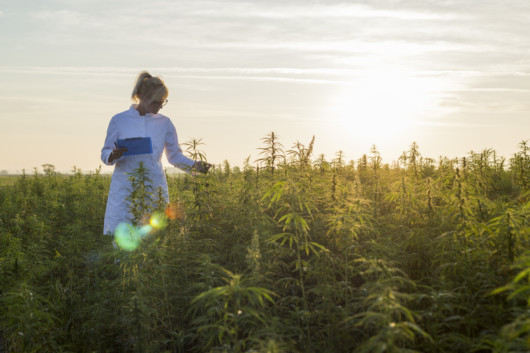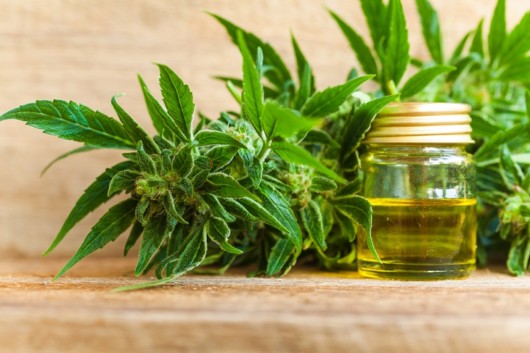If you’ve experienced shopping for CBD products, then you have an idea of how overwhelming the choices can be. As CBD’s popularity skyrocketed in recent years, the number of products associated with it also multiplied.
There are also innumerable brand names to choose from, which can be daunting especially to those who had just decided to try the product. Now, consumers must also contend with the terms ‘organic’ and ‘non-organic’ being used with CBD products.
But do these terms matter? In any case, it sounds like an easy decision; organic is good, right? Non-organic, meanwhile, has an image problem; it sounds unhealthy and unsafe. How do these terms apply to CBD?
In terms of producing CBD, there are appreciable differences between the two, such as the manner of cultivation, harvest, and the advantages that using one or the other entail. So, what are these differences, then? And, why should you care?
Differences Between Organic And Non-Organic CBD
The term ‘organic’ is used to describe agricultural products that were grown using natural pesticides, such as compost or manure. Insects and birds, being part of the natural order, are also used to control other pests in organic farming. Organic farming, to be considered as such, doesn’t allow for synthetic substances, like human-made pesticides and fertilizers.

Growers of non-organic produce, on the other hand, use insecticides, herbicides, and other human-made chemicals to cultivate their crops.
When the word ‘organic’ is applied to agricultural products, including hemp from which CBD is extracted (you can learn on SUPA Natural’s website about the extraction process), the organic farmers or growers had adhered and strictly followed the USDA (U.S. Department of Agriculture) guidelines during the growing process.
Certifying CBD Oil as Organic
Certified organic CBD oil is held to a much higher standard than non-organic. Producing organic-quality CBD oil doesn’t just mean that the hemp farmers didn’t use synthetic chemicals, like pesticides and herbicides. But it also means that the hemp plants were grown under conditions set by the USDA. If these conditions are met, then the CBD product will get certified and labeled as organic.
Do note that there’s a wide range of USDA criteria that have to be met. An organically grown hemp, for example, should be always kept in healthy and clean soil. Clean soil here refers to soil free from not only toxic chemicals but from heavy metals, too. This can be difficult since hemp plants are natural bioremediators, which means they can draw out contaminants, such as toxins and metals, from the soil. They can clean out your soil but all those toxins will be on the hemp.
This is one of the reasons why you should care that your CBD oil is organic and of high quality: the hemp plant is prone to absorb all those toxic chemicals and other nasty stuff from the soil. The CBD oil extracted from non-organic hemp would likely contain traces of heavy metals and other toxins. Not only is this bad for your health in the long run, but it would also harm the environment.
Why You Should Care for Organic CBD Oil
Hemp is quickly turning into a new cash crop because of its many uses. For one, it’s used as an excellent source for textiles, rope, paper, and other industrial uses. Many farmers have now started cultivating this plant, especially after the passage of the 2018 Farm Bill, which removed hemp from being lumped with marijuana as a Schedule I drug at the federal level.
Due to the passage of this legislation, researchers, manufacturers, and others can cultivate the hemp plant, from which CBD products are derived. But with a caveat: the hemp’s THC content, which is the chemical found in cannabis plants responsible for that ‘high’ feeling, shouldn’t be more than 0.3%.
As pointed out above, growing organic hemp takes a lot of work. Subsequently, not many farmers grow organic hemp. This is because of the many regulations that farmers have to follow before they can apply the word ‘organic’ to their products. So, as a consumer, it’s important to know that the CBD oil you’re using is extracted from organically classified hemp.

Here are the reasons why:
- Purity Assurance
Getting hemp certified as organic means the product has to go through a lot of tests. It has to undergo methodical analysis in a lab, where its cannabidiol profile is checked. The product should also be free from contaminants like heavy metals; even 0.1% of heavy metals is enough for a product to be denied an organic certification.
- Cleaner Environmental Footprint
Pesticides, herbicides, and synthetic fertilizers harm the environment. They can affect air, soil, and water quality, including wildlife.
Organic farming is less damaging and supports sustainability efforts. Also, pesticides kill off even pollinating insects. Organic farming can help maintain healthy levels of biodiversity.
- Organic CBD is More Potent
Synthetic chemicals and other toxins used in non-organic farming damage the soil and deplete it of nutrients. Consequently, hemp cultivated under organic specifications means it’s grown on healthier soil. The resulting products grown in organic conditions are subsequently packed with nutrients and they’re also more potent.
Organic and non-organic aren’t just buzzwords. Instead, they have appreciable differences that can impact not only your health but the environment as well. So, if you care about your health, you should make sure that the CBD oil you’re buying has the highest quality.



